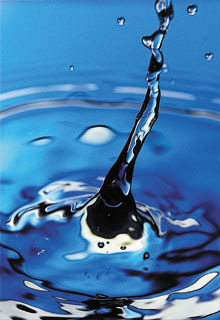Should I have my well tested?
Yes. Rules that protect public drinking water systems do not apply to privately owned wells. As a private well owner, it is up to you to make sure that your well water is safe to drink. The only way to find out if your well water is contaminated is to test it.
What are the effects of drinking contaminated water?
Drinking contaminated water can make you sick and can even be fatal. Bacterial contamination causes stomach cramps and/or diarrhea as well as other problems. Chemical contamination is equally dangerous.
What should I test for and how often?
RPC recommends testing your well twice a year (spring and fall) for bacteria and once every two years for harmful chemicals. In addition to regular testing, water should be tested immediately anytime there is a change in clarity, colour, odour or taste.
Why is it important to use an accredited laboratory?
Accreditation is a recognition of competence. Making sure your testing laboratory is accredited provides you the confidence in the ability of the laboratory to produce competent results.
Is sample collection complicated?
No. Sample collection is as simple as filling a bottle from your kitchen tap. RPC provides a collection kit with sample bottle and easy-to-follow instructions.
Why should I test my well when I've been using it for years with no problem?
Taste is not a good indicator of safe water. While some water contaminants may be obvious, most contaminants will be unnoticeable. Wonderful-tasting, sparkling-clear water can easily carry disease, organisms or toxic chemicals.
What happens if my sample results in an unsafe test?
RPC's laboratory staff can assist you in evaluating your test results, however, if you would like to discuss the health implications of your results, please contact your regional health protection branch office. |







